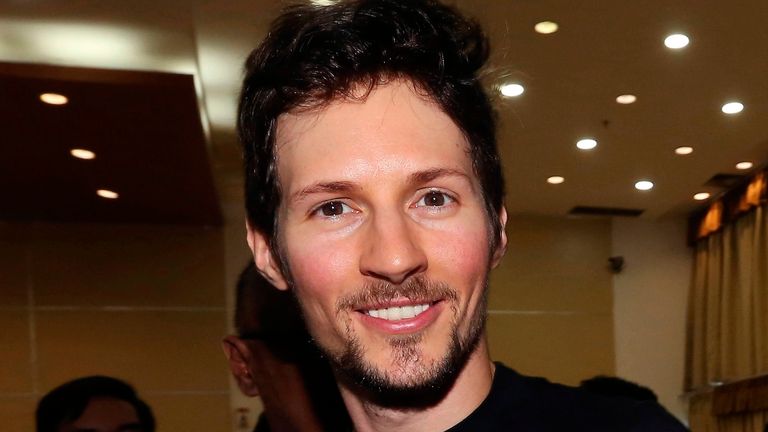Is Pavel Durov a brave crusader for liberty and free-speech, or a compromised individual whose social media platform empowers criminals, paedophiles and even Vladmir Putin?
The French authorities certainly think he has questions to answer.
Social media bosses are regularly questioned by governments – like the recent grilling of the heads of TikTok, Meta, and X before US Congress.
But French prosecutors have taken the virtually unprecedented step of arresting a tech boss over what they say is criminal activity on Durov’s platform Telegram and his refusal to cooperate in their investigations.
Telegram has rejected any such accusation saying it abides with all EU laws and that Durov has “nothing to hide”.
But Durov’s arrest is a consequential one.
It fits the narrative being pushed hard by libertarian loud-mouths with massive social media followings like Elon Musk and Tucker Carlson that efforts by western governments to regulate online platforms are political overreach and a direct attack on free speech.
Efforts to regulate encrypted platforms like Telegram, widely known to be used by organised gangs, paedophiles, money launderers and cybercriminals are, they argue, an effort to censor freedom of expression and the growth of cryptocurrencies that threaten vested political interests.
But where does Pavel Durov stand in all of this?
He founded his first social media company Vkontakte in his early 20s. His platform, a Russian language rival to Facebook, rapidly led to run-ins with Vladimir Putin’s government.
The authorities demanded to block access to political opponents using the site or have access to their data – Durov boldly and publicly refused – making him a hero to Russian the opposition.
At one rally protesting Russia’s early threats to block Telegram, Durov was portrayed as an icon with the Telegram logo held in his saintly fingers.
His departure from Russia, founding of Telegram and later acquiring French citizenship – including a name change to Paul du Rove – paint a picture of a man committed to upholding free speech in the face of oppressive regimes.
“Russia’s Mark Zuckerberg” certainly fits the contemporary profile of a tech billionaire. That’s to say to some he’s a role-model of success and self-discipline to others, a self-aggrandising egomaniac.
His social media posts feature him posing in black, or sometimes shirtless, among the natural beauty of places he visits. He’s a self-proclaimed ascetic who consumes no meat or alcohol, values ice baths and shuns relationships.
He also seems to share the modern tech mogul’s obsession with fecundity – posting last month how, through sperm donation, he is now the father of more than 100 children in 12 countries.
But there’s speculation too that France’s interest in him may also be linked to his platform’s ties to another man with a penchant for shirtless photoshoots.
Vladmir Putin took steps to shut down Telegram when it first appeared in Russia. The encrypted messaging, trading and networking app was being readily exploited by his opponents as well as criminals.
But in 2018 the Kremlin suddenly ended its pursuit of Telegram, where it is now one of Russia’s most popular social media apps – even with the Russian military. A leading Russian pro-war blogger joked after Durov’s arrest: “De-facto they detained the head of communications for the Russian Army”.
A rival encrypted messaging app Signal, whose servers, unlike many of Telegram’s are not hosted in Russia, was recently banned there.
Telegram has previously said that “no deals” were made with Russia in order for Telegram to continue operating there and Durov has long maintained that both he and his platform are staunchly apolitical.
Sensitive to accusations of political motivations, French President Emanuel Macron said today Durov’s arrest was part of a judicial investigation and that France was committed to freedom of expression and entrepreneurship.
But just as the Telegram app currently works to Russia’s advantage so too does Durov’s arrest.
We now have the irony of the Russian government, with a long history of controlling social media and detaining political opponents, calling Durov’s arrest politically driven and an attack on free speech.

